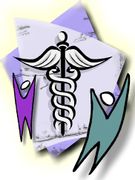
If your doctor has told you that you have high blood pressure, you may have many questions about the diagnosis and what it means for you. Knowing more about this condition will help you understand how to mitigate its effects. Use this guide to inform yourself further on hypertension.
A Guide to Hypertension
What is it?
When blood circulates throughout the body, it puts a certain amount of force against the artery walls. This value is known as blood pressure. If the force stays too high for a long period, you have hypertension. Being overweight is a common cause.
What are the symptoms?
Unfortunately, there are no symptoms or warning signs. People only discover they have hypertension when their doctors measure their blood pressures. If the reading is elevated during several appointments, this condition is often the cause.
In rare cases, symptoms like vomiting or headaches can occur.
What are the consequences?
Hypertension can cause decreased blood and oxygen flow to the heart, leading to heart disease. This decrease in blood flow can also lead to chest pain, heart failure, and heart attacks. Decreased blood and oxygen flow can occur in the arteries that connect with the brain, which may lead to a stroke.
How can I manage my high blood pressure?
 Doctors will usually prescribe patients with medications.
Doctors will usually prescribe patients with medications.
To minimize your blood pressure, eat a diet low in sodium, cholesterol, and bad fats, including artificial trans and saturated fats. Staying active with weekly exercise will also help you maintain a healthy weight, which lowers blood pressure.
What is a regular blood pressure reading?
If you have hypertension, measure your blood pressure at home and keep a record of the readings. This will help your doctor understand whether the management steps are working.
The device gives two numbers, usually displayed as “x/y” or “x over y.” The first is your systolic blood pressure, which measures the pressure in your blood vessels when your heart beats in millimeters of mercury (mmHg). The second number is your diastolic blood pressure, which is the pressure between beats, when your heart rests.
A normal blood pressure level is less than 120/80 mmHg. A blood pressure level between 120/80 mmHg and 139/89 is prehypertension. A level above 140/90 is hypertension.
When you have hypertension, it’s especially important that you monitor your health with the help of a primary care physician. Patients First Medical Clinic in Anchorage, AK, is here for you. The talented staff has over 150 years of combined experience providing quality health care. They are a full-service clinic and also offer urgent care. Call (907) 333-7425 to make an appointment, or learn more about their practice on their website.
About the Business
Have a question? Ask the experts!
Send your question

